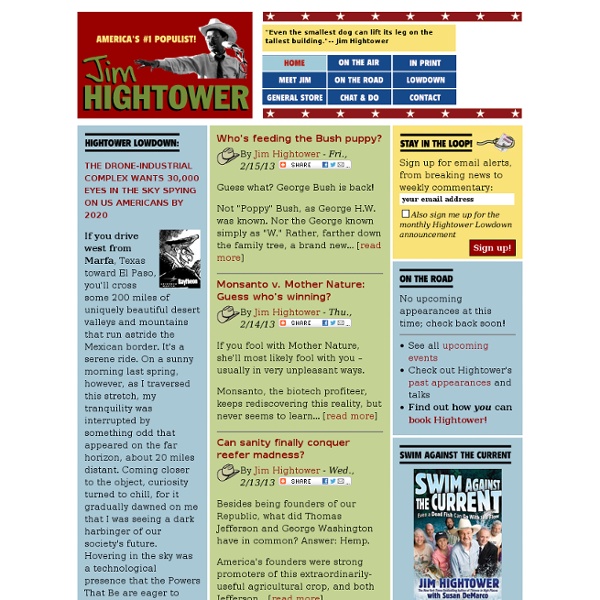



This Is Hell! Dissent Magazine The Lie Factory It's a crisp fall day in western Virginia, a hundred miles from Washington, D.C., and a breeze is rustling the red and gold leaves of the Shenandoah hills. On the weather-beaten wood porch of a ramshackle 90-year-old farmhouse, at the end of a winding dirt-and-gravel road, Lt. Colonel Karen Kwiatkowski is perched on a plastic chair, wearing shorts, a purple sweatshirt, and muddy sneakers. Two scrawny dogs and a lone cat are on the prowl, and the air is filled with swarms of ladybugs. So far, she says, no investigators have come knocking. Not from the Central Intelligence Agency, which conducted an internal inquiry into intelligence on Iraq, not from the congressional intelligence committees, not from the president's Foreign Intelligence Advisory Board. Until now, the story of how the Bush administration produced its wildly exaggerated estimates of the threat posed by Iraq has never been revealed in full. Both Wolfowitz and Feith have deep roots in the neoconservative movement.
Weigel Dana Stevens and I just recorded a Spoiler Special for The Unknown Known, Erroll Morris' long-awaited, critic-confounding documentary about Donald Rumsfeld. Off the clock, I went to see Captain America: The Winter Soldier, the latest blockbuster in the Marvel movie universe, and the one most likely to incite anger on Fox News followed by anger-at-the-anger on The Daily Show. It wasn't planned this way, but the two films went together like a white wine and fish pairing. The Unknown Known comes to the screen with heavier expectations, of course, and an aura of Importance. Donald Rumsfeld was not paying attention. But that's it. The Captain America sequel, naturally, makes its black hats and white hats more distinct. Plenty of critics have called this one of the best, or the best, of the Marvel films. It's played for darkness, for a while. In a closing scene, Black Widow justifies the destruction of the program and leaking of every S.H.I.E.L.D. secret in front of a governent panel.
The New Israeli Left As the controversial 443 highway, which connects Tel Aviv with Jerusalem by passing through the West Bank, begins to curve toward Israel’s capital, the eye is inevitably drawn to an imposing gray structure with massive concrete walls, part of the Ofer Military Prison. Commuters are barely aware of what takes place behind those walls, and that’s no accident—the Ofer compound, comprising a military court, detention center and prison, is just one of many black holes that enable Israelis to go on with their daily lives, unaware of the everyday realities of the occupation. We Recommend The deteriorating ability to protest and the narrowing space for political activism against the Israeli occupation, Pollak says, have coincided with a growing space for racism and nationalism. About the Author Noam Sheizaf Noam Sheizaf, an Israeli journalist and blogger based in Tel Aviv, is an editor and contributor for the web magazine +... Joseph Dana Also by the Author Friday morning in Tel Aviv.